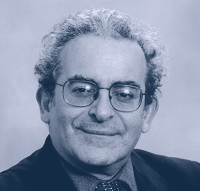Although the Constitution has been formally amended 27 times, the Twenty-First Amendment (ratified in 1933) is the only one that repeals a previous amendment, namely, the Eighteenth Amendment (ratified in 1919), which prohibited “the manufacture, sale, or transportation of intoxicating liquors.” In addition, it is the only amendment which was ratified, not by the legislatures of the states, but by state ratifying conventions, as called for by the Amendment’s third section. The Constitution, in Article V, allows for ratification by either method.
Why did those who proposed the Twenty-First Amendment take the unprecedented step of calling for ratification by convention delegates rather than by legislators? The answer seems to be that though prohibition of alcohol had lost a great deal of popular support by the early 1930s, the political power of the temperance lobby remained intact in a great many states. Many state legislators and legislative leaders were likely to be unwilling to risk the lobby’s wrath. So political prudence pointed in the direction of ratifying conventions as a way of leaving gun-shy legislators with their eyes on re-election out of the process and “off the hook.”
Why had public opinion turned against Prohibition? The story here is more complicated. Part of it is captured by the old joke that “after fourteen years with nothing to drink the American people got thirsty.” But the desire of people to drink beer, wine, and spirits lawfully was merely part of the story. More significantly, in all probability, is the judgment of a great many citizens that Prohibition had been a failed, if noble, experiment.
This is not to say that Prohibition had failed to reduce the consumption of alcohol or lower the alcoholism rate or ameliorate in some measure evils associated with drunkenness and alcohol addiction. Especially in the years immediately following Prohibition, the hopes of progressives and others who had supported ratification of the Eighteenth Amendment seemed well-founded. But soon evils on the other side of the ledger became apparent: The black market in alcohol quickly grew; and the inability or unwillingness of law enforcement agencies at every level to stop the illegal production, sale, and transportation of intoxicating liquors resulted in beverage alcohol being more or less easily available to anyone who wanted it, and at prices that ordinary working people could afford. Although the price of liquor, once it became illegal, shot way up in the period immediately following Prohibition, it soon fell dramatically. The Anti-Saloon League (founded in 1893) and its allies had shut down the saloon, only to have it replaced by the “speakeasy.”
What’s more, Prohibition had turned out to be a great boon to organized criminals, such as the notorious mobster Al Capone, who for their own reasons loved it as much as Frances Willard’s Women’s Christian Temperance Union did. Organized crime syndicates used profits from illegal liquor to corrupt police, resulting in non-enforcement of Prohibition (and other) laws in some cases and selective enforcement in others. The public was appalled.
Add to this the feeling that the widespread flouting of Prohibition laws was undermining respect for law in general and encouraging an attitude of contempt for rightful authority, and it is easy to see why support for repeal of Prohibition grew.
The Twenty-First Amendment did not, however, restore the status quo ante. Had its first section stood alone, that would have been the result. But its second section has been interpreted by the courts and others as giving broad authority over the regulation of alcoholic beverages to the states and limiting the power of the national government to intrude upon state alcohol beverage control policies. States, in turn, can and in many cases have delegated authority to counties and localities. As a result, the availability of alcoholic beverages, their prices, and the terms and conditions under which they can be obtained (for example, whether a county is “dry,” or whether a state itself exercises a monopoly on the sale of wines and spirits) have varied substantially across the country.
Litigation of Twenty-First Amendment issues has nearly always concerned the meaning of the Amendment’s second section, and usually the scope of state authority under it.
Often questions arise concerning the impact of the second section of the Twenty-First Amendment on the power of Congress “to regulate commerce . . . among the several states . . . .” under Article I, Section 8 of the Constitution. The courts have held that the Amendment means that the power of Congress to displace state regulatory policies is narrower with respect to alcohol than it is to other goods and services; but precisely how much narrower has not been fully established.
Other questions sometimes arise concerning the scope of the power of states to regulate the sale and distribution of alcohol under Section 2 when the states act on their own, without any prior regulation by Congress, but do so in a way that may affect out-of-state alcohol producers or products. In Tennessee Wine and Spirits Retailers Association v. Thomas (2019), the Supreme Court said that Section 2 “constitutionalized” the basic understanding of the extent of the states’ power to regulate alcohol that prevailed prior to Prohibtion and the Eighteenth Amendment’s adoption. And during that time, the Court found, states were barred (under the dormant Commerce Clause) from discriminating against out-of-state citizens and out-of-state products in the sale and distribution of alcohol. So while states today have considerable latitude over alcohol regulation under Section 2 of the Twenty-First Amendment, they may not adopt purely protectionist measures designed to favor in-state producers and sellers of alcohol that burden interstate commerce.






